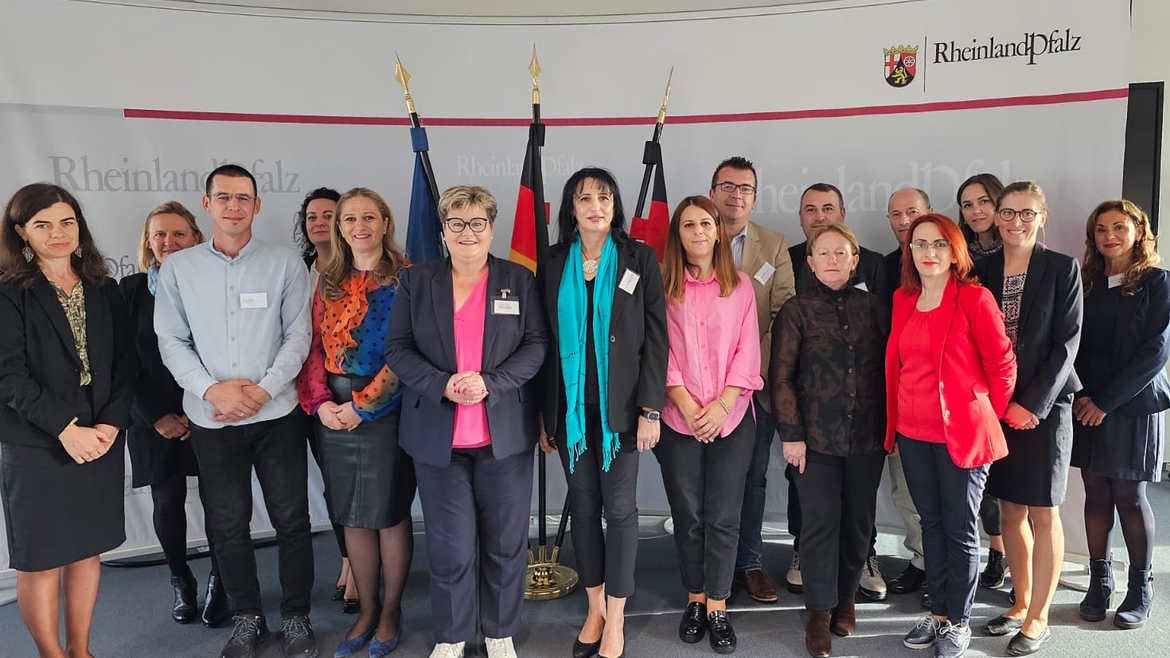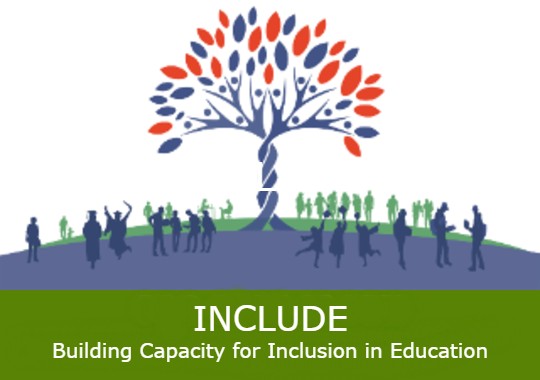Eleven education policy-makers and professionals from Kosovo* were acquainted with the German and Luxembourgish model of inclusive education during a study visit which took place from 9 to 13 October and was organised by the European Union and Council of Europe Joint Project “Building Capacity for Inclusion in Education - INCLUDE”.
The study visit was opened by Thomas Linnertz, President of the Supervisory and Service Directorate which has the responsibility for the provision of quality inclusive education in the Rhineland-Palatinate. After warmly welcoming the participants, Mr Linnertz underlined that the implementation of the Convention on the Rights of Persons with Disabilities with the unrestricted parental right to choose, has formed part of the Rhineland-Palatinate Education Act since 2014. “Our goal is to offer support for all children with special education needs so they can develop their full potential” Mr Linnertz said. Inclusion is the duty of all schools, and parents of children with special education needs can decide whether their child should attend school with support measures to include them or a special needs school.
The participants learned how the topics of inclusion can be integrated into the three phases of teacher training, namely in the university education, 18-months long teaching practice, and continuous professional development. Differentiated methods of teaching, teachers’ self-awareness and attitudes towards inclusion as well as the challenges to provide meaningful inclusive measures were among the key topics discussed.
Over the next three days, the members of delegation observed the Rhineland-Palatinate model of inclusion in practice in Matthias Primary School, Nelson Mandela Realschule plus and Medard School in Trier and shared their experience of providing inclusive quality education with principals, teachers and educators. The delegation also visited Luxembourg, namely the Fundamental School Steinsel and engaged in fruitful discussions with representatives from the Luxembourg Ministry of Education, Children and Youth and Luxembourg’s Teacher Training Institute on how to connect inclusive education policy with practice.
The study visit concluded with a meeting with State Secretary Bettina Brück and her team from the Ministry of Education in Mainz who underlined the importance of sharing of experiences and international exchange. The meeting was marked by a dynamic exchange of insights from education policy, and also ideas for future areas for co-operation, including twinning between German and Kosovar schools as well as further training of teachers as underlined by Fadile Dyla, General Secretary from the Ministry of Education Science Technology and Innovation in Kosovo.
* This designation is without prejudice to positions on status and is in line with UNSCR 1244 and the ICJ Opinion on the Kosovo Declaration of Independence.


